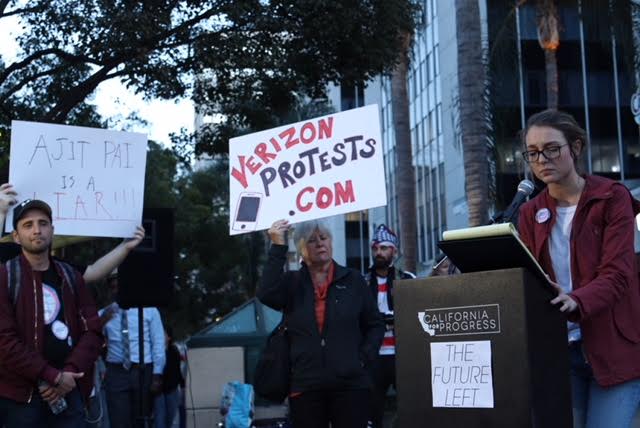
Now that Net Neutrality has been repealed, there is nothing officially stopping the ISPs from controlling the flow of the internet.
Before 2015, only water, power, gas, and telephone services were considered public utilities but now that Net Neutrality has been repealed, the question of whether or not to classify the internet as a utility is officially being confronted once again.
Here are some questions to ponder in these uncertain times:
What is a “utility” and why should the internet be considered one?
A public utility service is a government sanctioned company or organization which is responsible for maintaining the infrastructure and distribution of a public resource or amenity such as water, power, sewage, telephone service, gas, and potentially, the internet.
Utilities are resources and services which society has deemed necessary for everyday living. When a resource or service is defined as a public utility, a certain level of government regulation is granted to insure that this necessary public utility is distributed fairly and efficiently.
Under Net Neutrality, the internet was being treated much like a utility. Internet service providers or ISPs like Verizon, Comcast, and AT&T were restricted and regulated by the government in how they structured their business models and how they distributed their services. For example, ISPs were not allowed to provide better internet speed to some websites and throttle or slow down others.
Now that Net Neutrality has been repealed, there is nothing officially stopping the ISPs from controlling the flow of the internet.
There are three obvious problems with ISPs controlling the flow of the internet.
1. What is stopping the ISPs from charging certain websites like Google or Netflix much more to run? If the ISPs do decide to charge Google and other sites at a higher rate, does that mean that in turn, these websites will charge us, the consumers, more for their services? That is to say, the entire internet experience may become a lot more expensive.
2. How will freedom of speech on the internet be affected now that the authority of censorship is put in the hands of the ISPs?
Since Net Neutrality has been repealed, there is nothing stopping ISPs from boosting news or other websites which support their corporate agendas and silencing or slowing other sites who may be critical of them. For example, imagine an internet where no one could ever criticize Verizon or any of the companies it owns.
3.Without Net Neutrality, ISPs can speed up websites they own and slow down other competing websites who offer the same service, in a sense cheating the competition. For example, Verizon, which owns Yahoo, can now boost Yahoo Mail while slowing down Gmail, in order to gain an edge.
All of that being said, there are some legitimate questions to be asked on the other side of the debate.
Google and Netflix, which have been heavily in favor of Net Neutrality, use a lot more bandwidth than other sites. With the emergence of 4k streaming video and Virtual Reality on the rise, should video streaming sites pay more than others?
There are a couple of moving parts when it comes to the question of bandwidth and who should pay for what.
While it may be true that certain websites use a lot more bandwidth than others, internet providers do not seem to be especially strained in providing that needed bandwidth. It seems they can easily handle all the bandwidth needs of the internet as it exists today, even with video streaming websites like Netflix and YouTube. However, there are hypothetical scenarios where bandwidth availability could be an issue. With the emergence of 4k programing or super high definition video and gaming, bandwidth use and how much ISPs are allowed to charge for it, will most likely become a heated debate.
At the end of the day, the bandwidth issue may or may not be a serious one. However, threats to freedom of speech and internet affordability are certainly very serious. How serious? We will have to wait and see.
At this point, the only way to stop ISPs from taking advantage of their newly gained power, is to take your business to another internet service provider for your internet needs. The problem with that is that there are only so many internet service providers to choose from.







